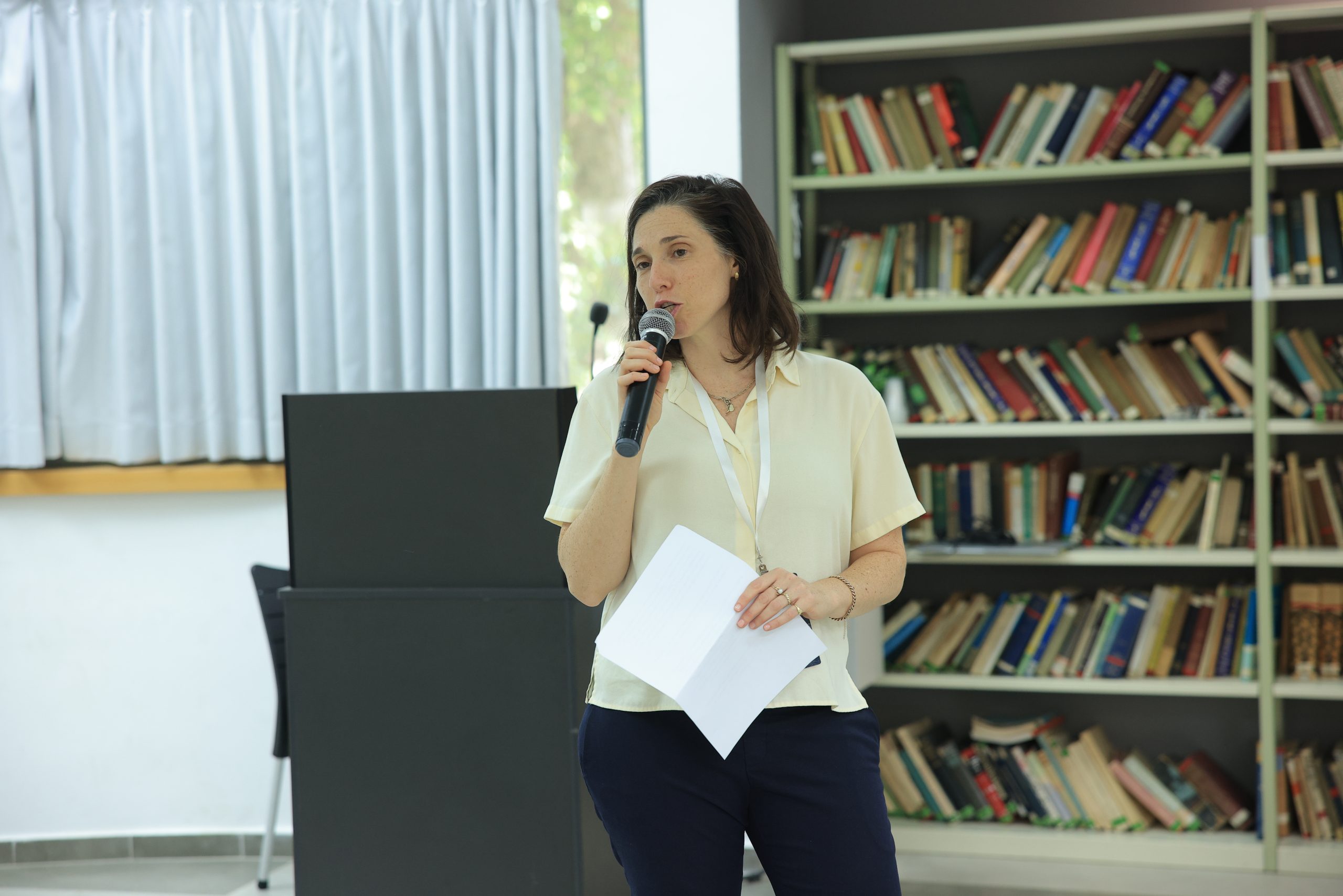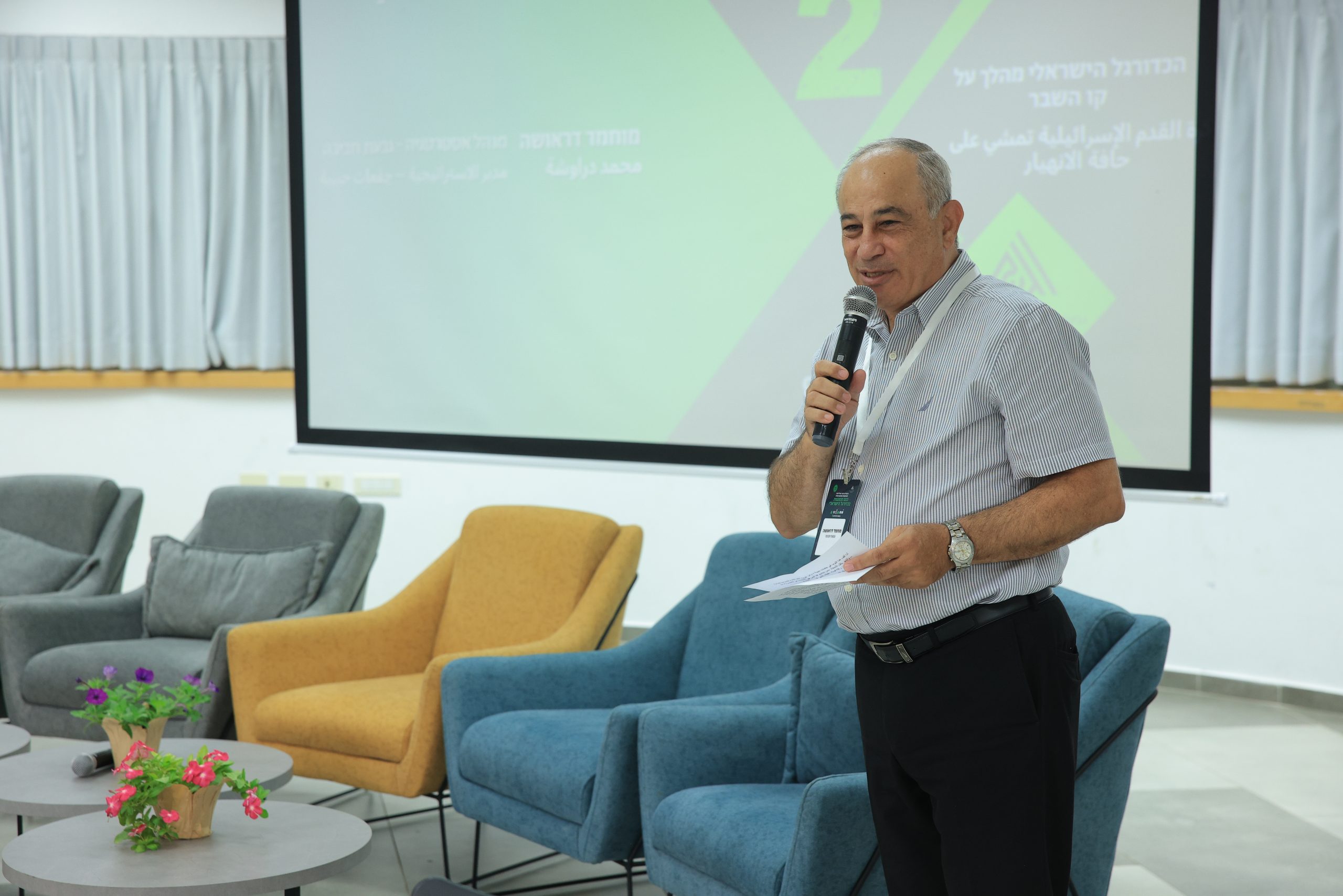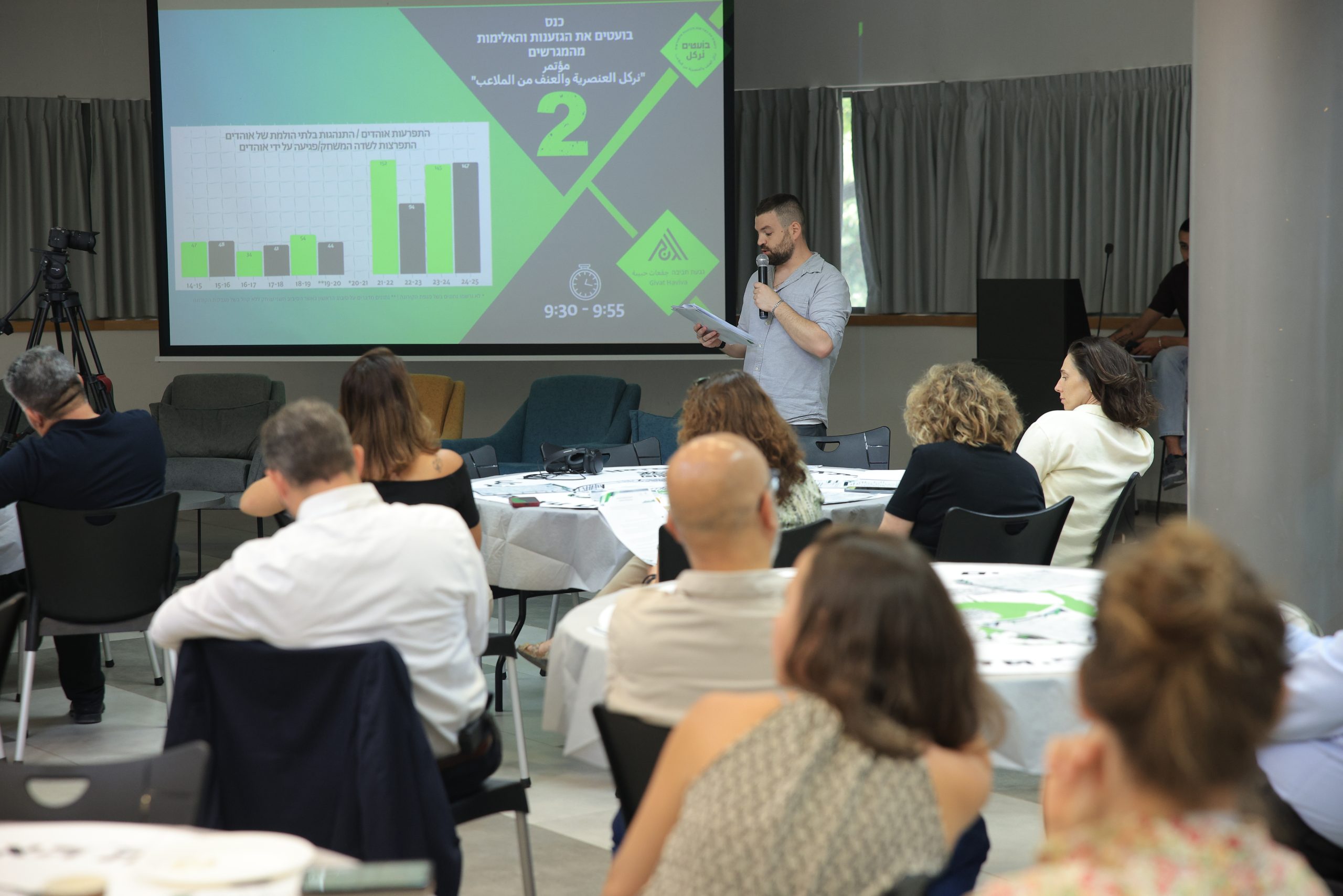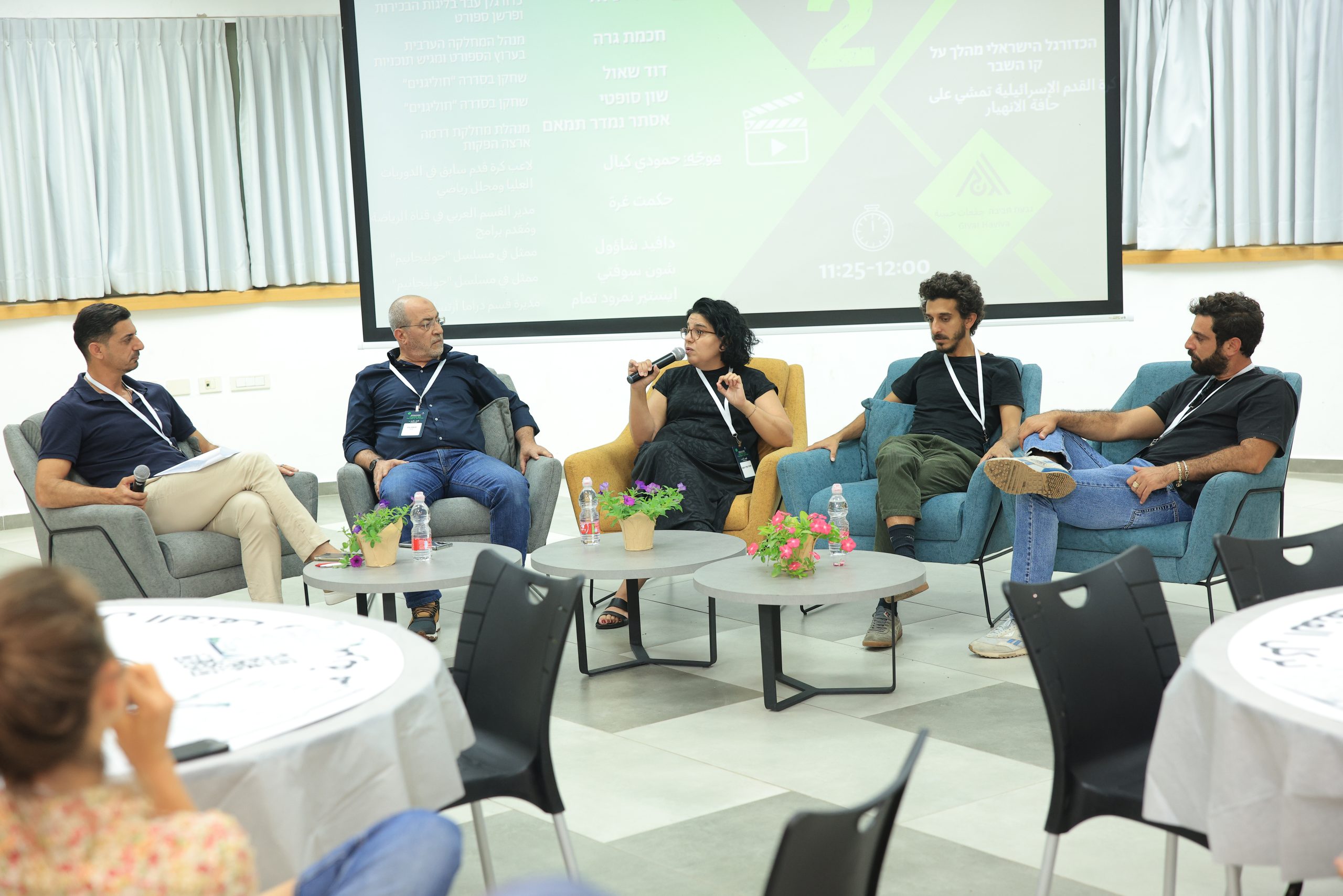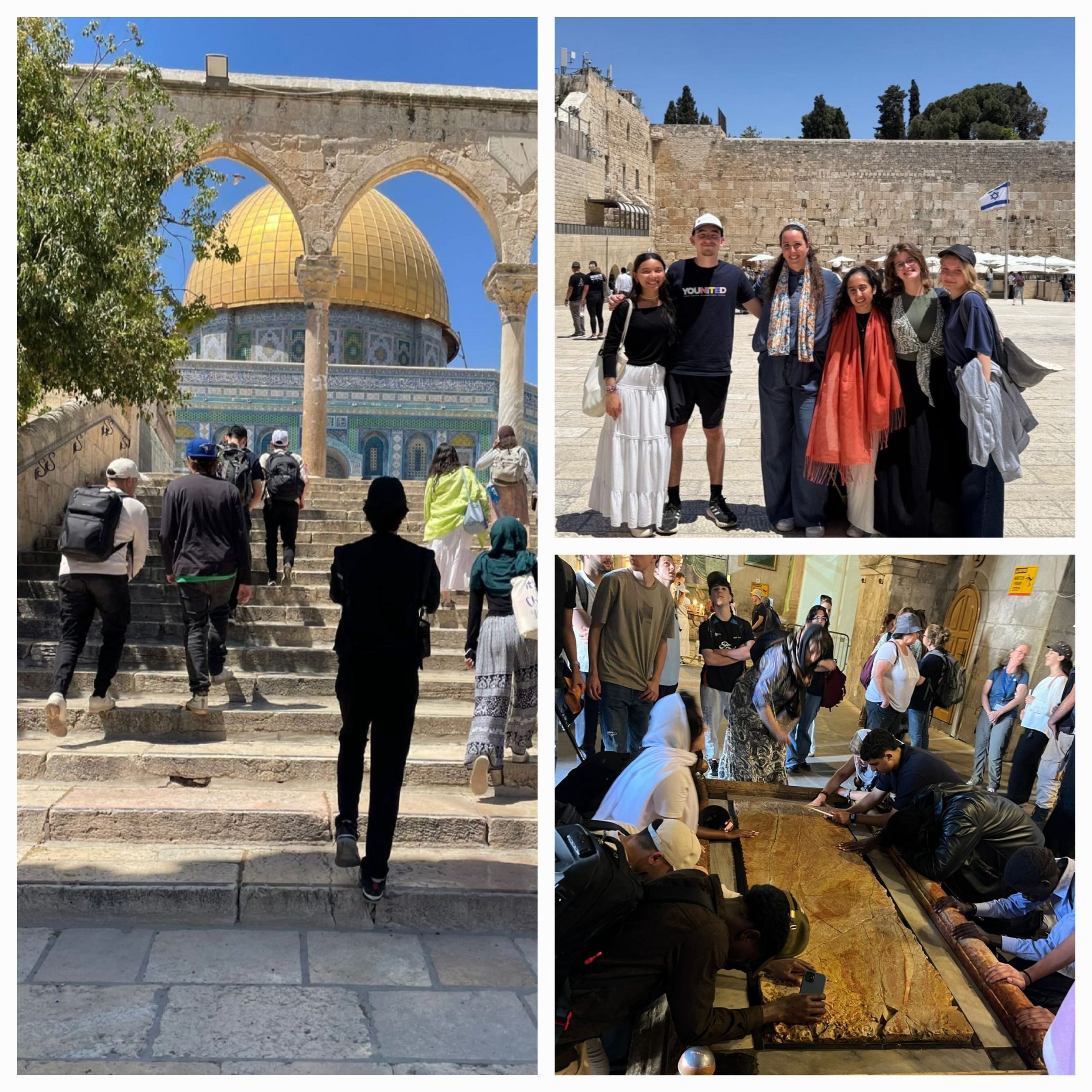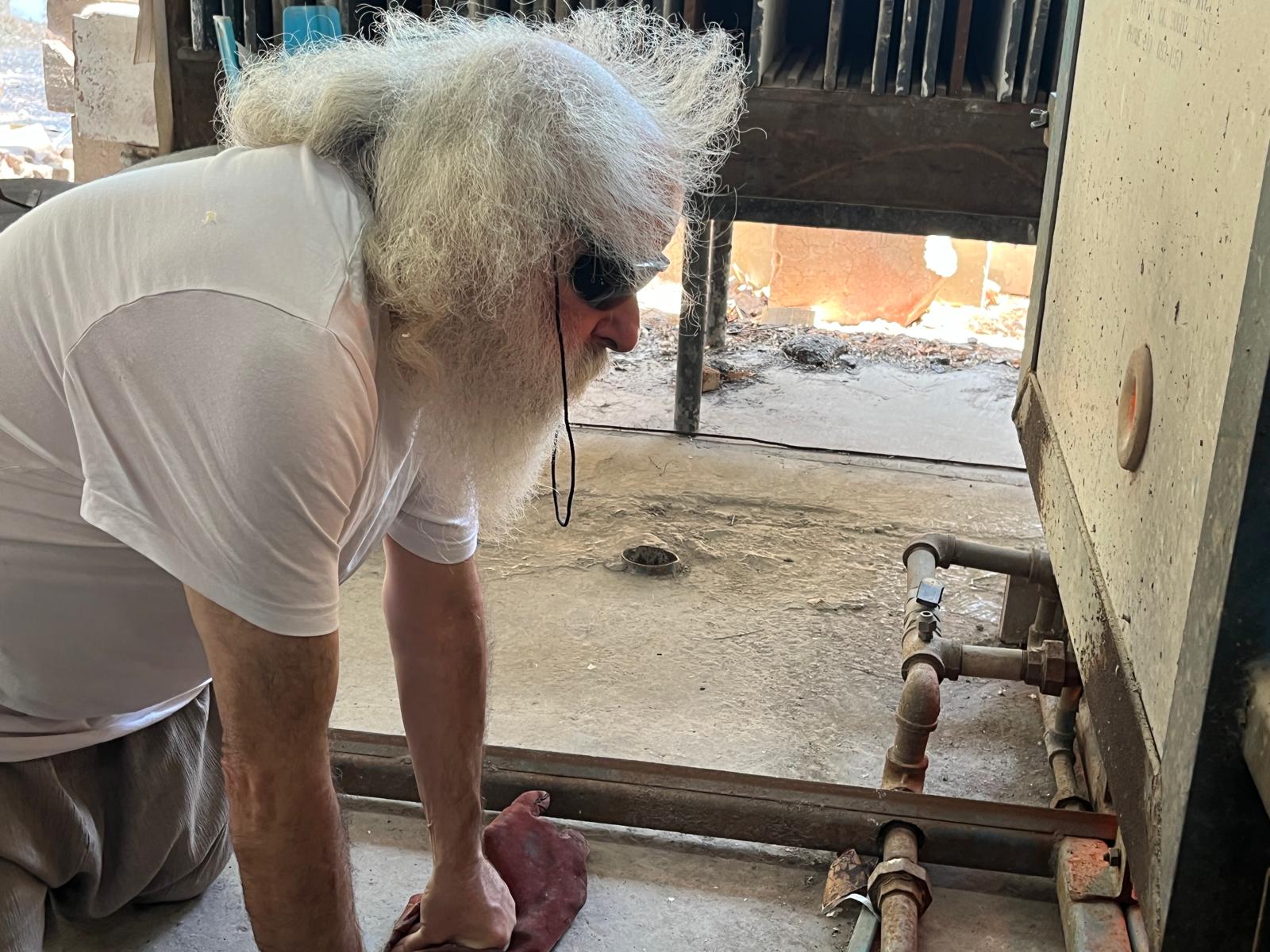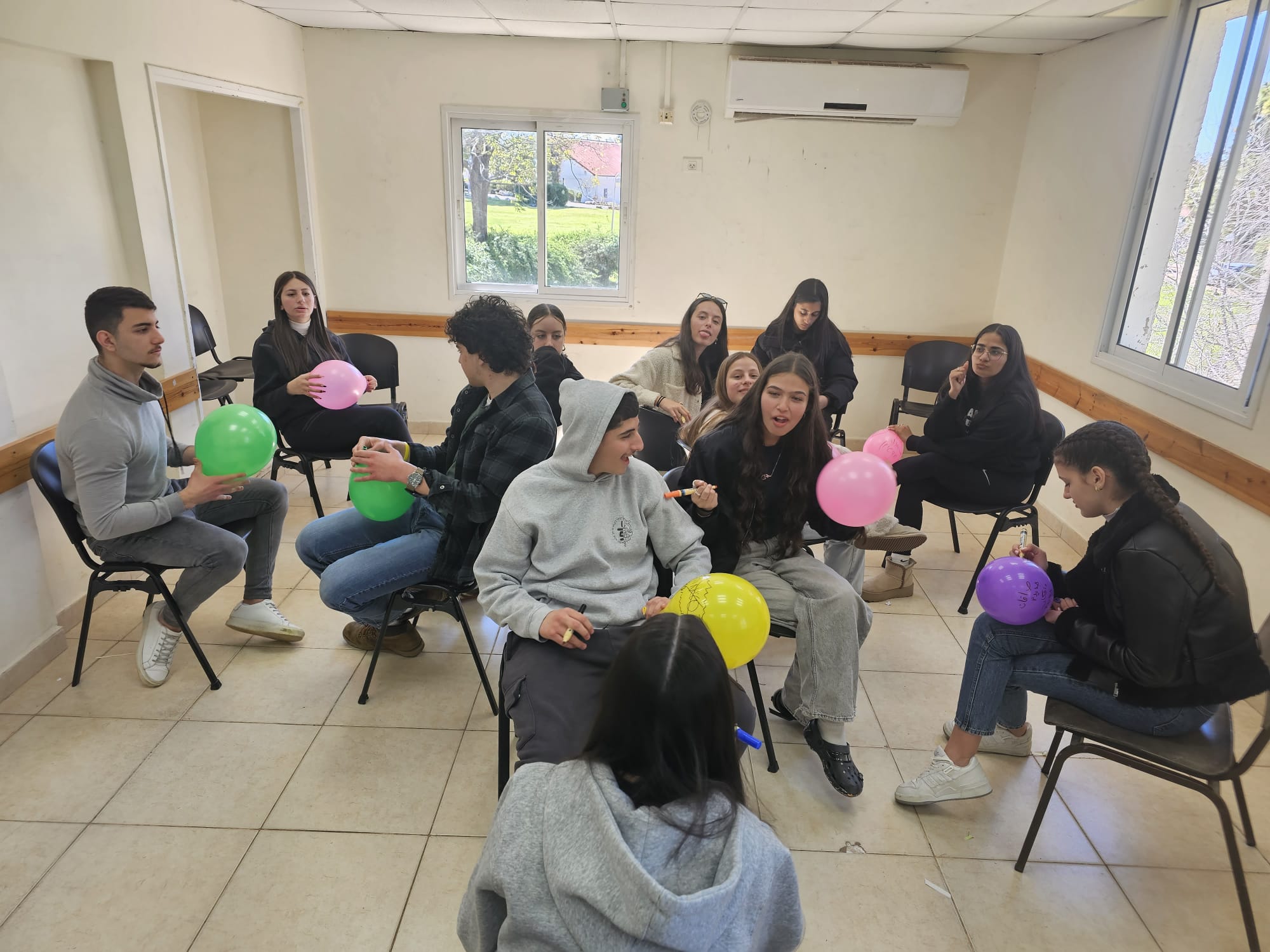Givat Haviva’s “Kick It Out” Conference took place against the backdrop of one of the most violent, toxic, and charged seasons that Israeli football has ever known. The conference dealt with the burning social issues that threaten the spirit of sports – racism, violence, homophobia – alongside the ongoing difficulty in dealing with these phenomena ethically, publicly and legislatively.
The conference brought together a variety of perspectives from the world of football, from the stands to the Knesset: active and retired players, referees, professionals, club representatives, the Football Association, fans, and elected officials came together with the aim of outlining new and effective courses of action for the upcoming season. The conference dealt with the deep rift in which Israeli football finds itself. On the one hand, a sharp increase in expressions of racism on the fields and a season fraught with violence, on the other, the yellow card that UEFA recently issued to Israeli football, and talk of removing Israeli teams from European competitions, which is making headlines.
The program’s second conference, held at the Jewish-Arab Center at Givat Haviva, dealt with the burning social issues that threaten the spirit of sports – racism, violence and homophobia.
Here are a few quotes from what was said at the conference (in order of the sessions):
Michal Sela, CEO of Givat Haviva, opened the conference and said: “The plots are a mirror to our society. If we know how to cleanse them of violence, if we can ensure that they are a place where fans from all sectors feel at home, we can also build a different society here.”
Matan Segal, Director of the “Kicking” program: “The Israeli football we love so much is in real existential danger and is on a fault line. UEFA’s threat was supposed to be a defining moment, a wake-up call, a change, but instead of the warning cry resounding, instead of seeing real steps that keep politics and racist discourse away from the pitches, we were left with the same reality, the same indifference and the same indifference.“
***
Nadine Abu Laban, a sports reporter for Haaretz, interviewed the lawyer and former Knesset member Yousef Jabareen:
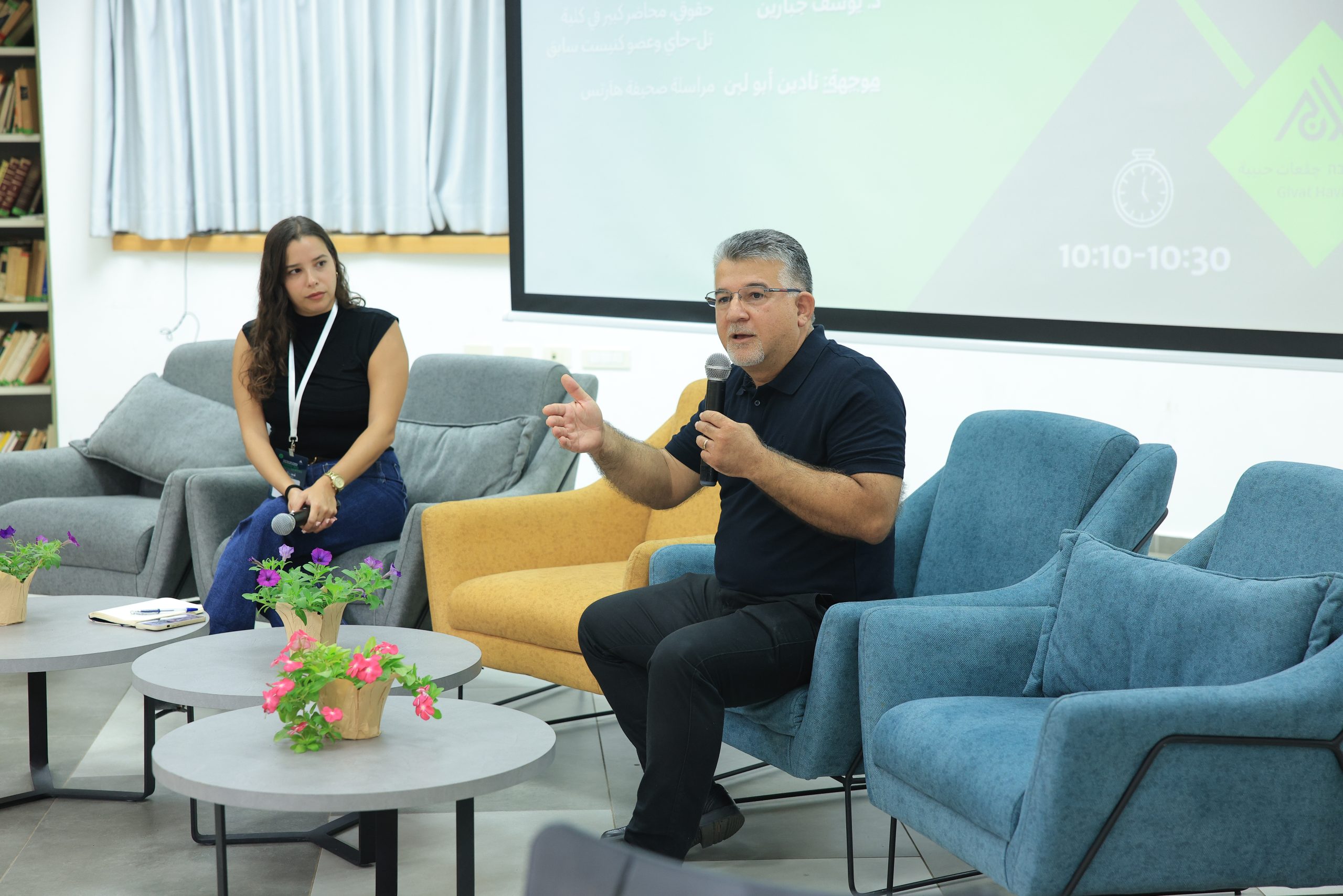 “Israeli investment in sports education, an investment intended for Arab society, is almost non-existent, and it has consequences. As an Arab resident who has lived for years in a nightmare of violence and crime, I can’t help but relate the two things: Sport has power in preventing violence, because when you play sports you have a purpose. Another point: The association treats sports as something technical, players who compete and that’s it, but sports are supposed to convey a moral message. Israeli sports are conducted detached from Israeli society, do not express moral positions and disavow those who seek justice and peace. A silent sport is a sport that does not want change and fixes negative values. Since the beginning of the war, those who have paid the price for calls to end the war have been Arab students and players, and what a wonder that at the end of the day we see talents who prefer to play abroad.”
“Israeli investment in sports education, an investment intended for Arab society, is almost non-existent, and it has consequences. As an Arab resident who has lived for years in a nightmare of violence and crime, I can’t help but relate the two things: Sport has power in preventing violence, because when you play sports you have a purpose. Another point: The association treats sports as something technical, players who compete and that’s it, but sports are supposed to convey a moral message. Israeli sports are conducted detached from Israeli society, do not express moral positions and disavow those who seek justice and peace. A silent sport is a sport that does not want change and fixes negative values. Since the beginning of the war, those who have paid the price for calls to end the war have been Arab students and players, and what a wonder that at the end of the day we see talents who prefer to play abroad.”
***
Adham Habibullah, editor-in-chief and correspondent at i24news and Al-Shams Radio, moderated a panel with the participation of Nael Odeh, a referee in the Premier League; Uri Levy, journalist and sports commentator; Adv. Yuval Shadmi, who specializes in representing athletes and sports associations, and Baruch Saar, a coach and owner of a football club, on the impact of racism and violence on the pitch and the eradication of phenomena in real time and retrospect.
Nael Odeh: “The difference between us and UEFA lies in the punishment for incidents of violence and racism – UEFA punishes harshly and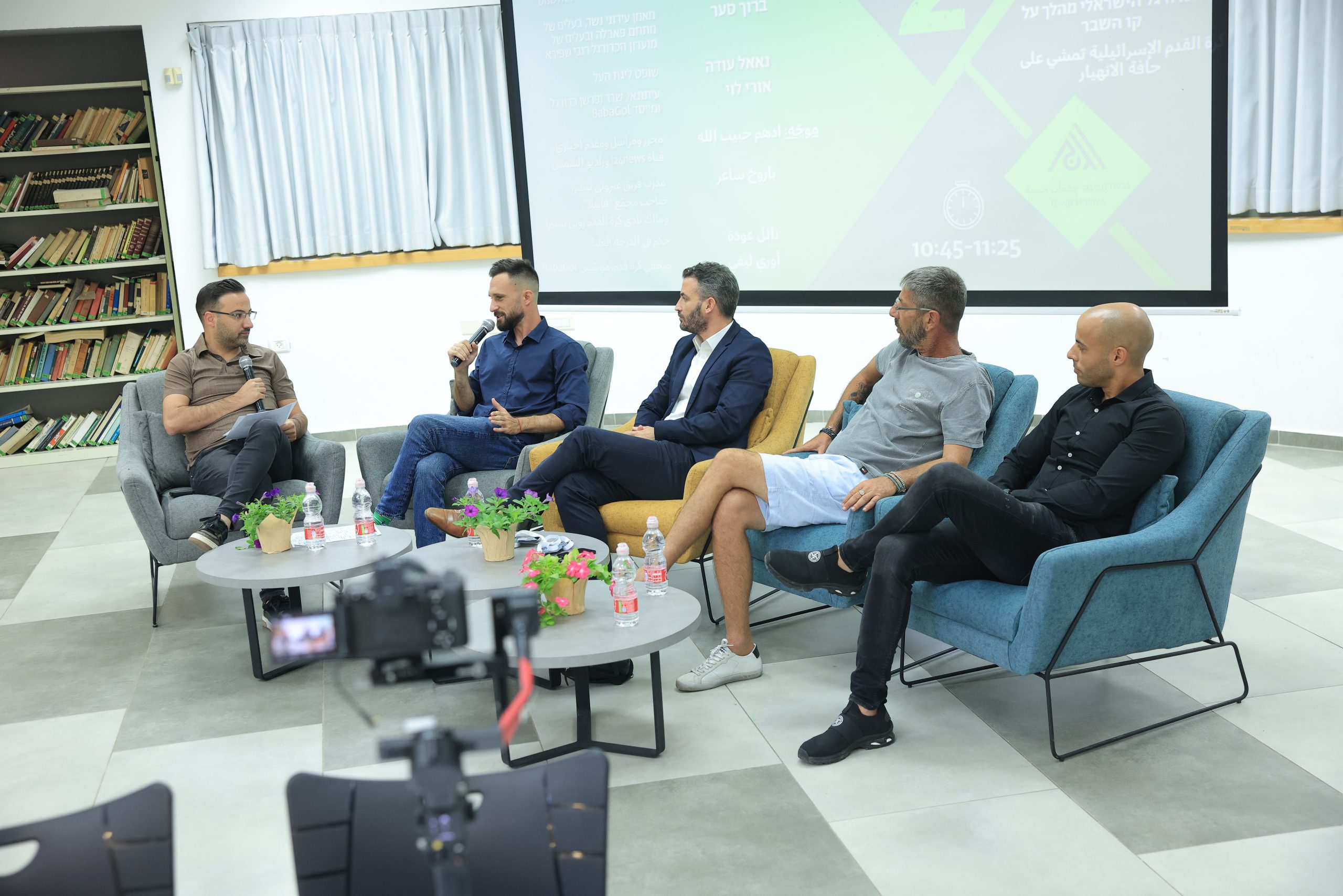 Israel does not. I act according to instructions, not emotions, if I encounter incidents of racism and violence during a game – I will not hesitate and light To stop the game as the constitution requests. I have been called racist chants at me, both before and after October 7, as a judge I was called a terrorist, a dirty Arab.”
Israel does not. I act according to instructions, not emotions, if I encounter incidents of racism and violence during a game – I will not hesitate and light To stop the game as the constitution requests. I have been called racist chants at me, both before and after October 7, as a judge I was called a terrorist, a dirty Arab.”
Uri Levy: “I recently interviewed Dia Seba. In the interview, I realized that the madness here has come so far, that a player who records the most professional season, one of the greatest in the Premier League, gets booed by his fans! And the club he plays for is not trying to fix the situation and repair the rift that has opened between him and the fans.”
Yuval Shadmi: “As Hapoel Tel Aviv’s legal advisor, we took legal measures against individual rioters, through the security cameras, and we made sure that the person who rioted would come to court. The association acts differently and does not bring results, it is bound by the means at its disposal, to reduce points and games without crowds, and I think it’s terrible.”
Baruch Saar: “I am the owner of a soccer club in which 70% of the players are from Arab society, we hold hundreds of personal training sessions for these players and I am optimistic about the chances of an Arab soccer player succeeding in Israel. Unfortunately, the level of management and professional decisions in Israel is at a low level, so if we had learned from the way the sport is managed in the world, Israeli football would flourish.”
***
Hamoudi Kayal, a former soccer player and sports commentator, interviewed one of the creators of the series “Hooligans”, Esti Namdar, and the stars of the series, Sean Softy and David Shaul, as well as Hokmat Gura, director of the Arab department at the Sports Channel, about how culture can change discourse and promote social struggles.
***
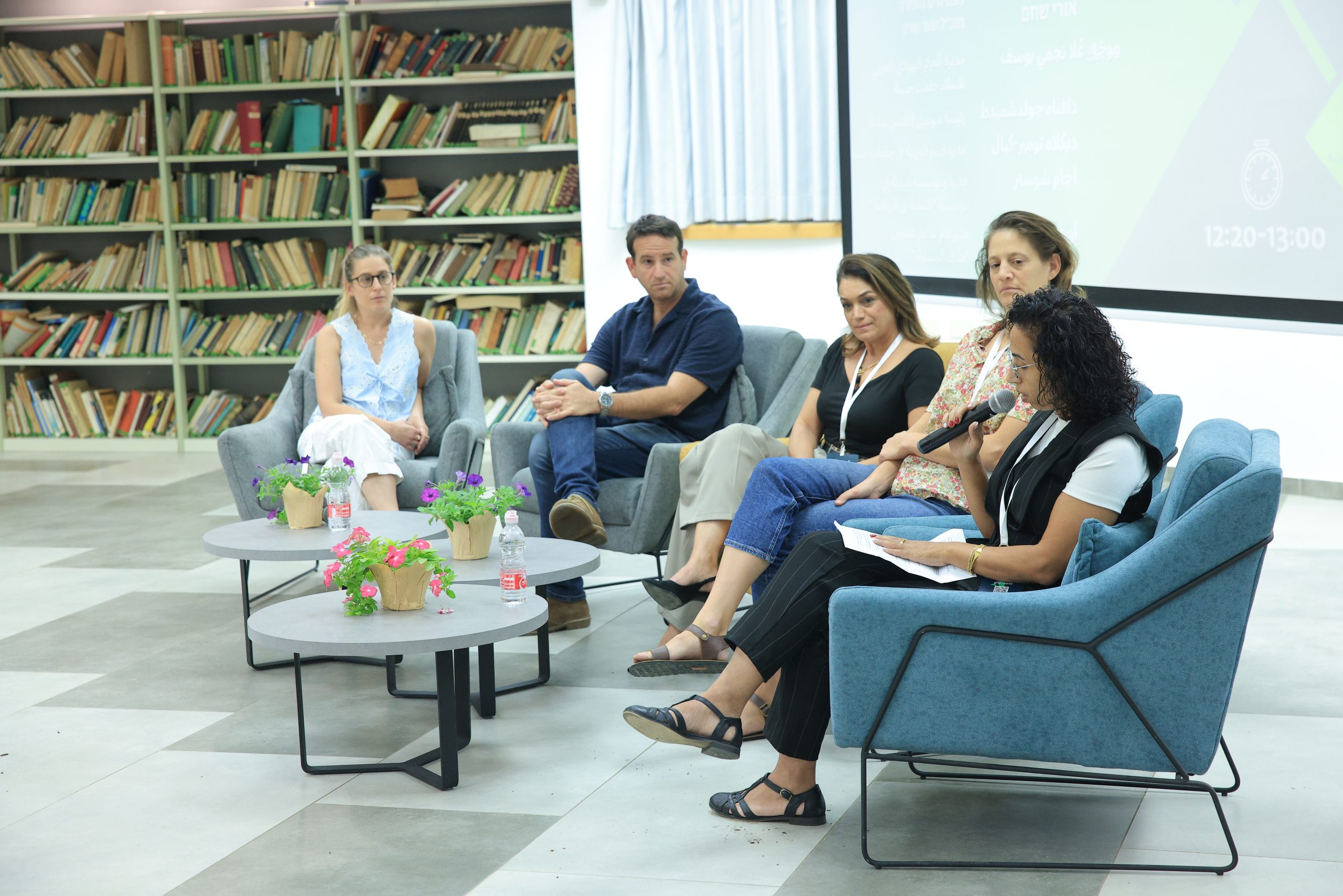 Ula Najmi Yousef, director of the Jewish-Arab Center in Givat Haviva, moderated a panel that examined soccer as an educational tool for social change, bringing youth together. She spoke with Agam Shuster, director and co-founder of the “Grow Foundations”; Dikla Tomer-Kayal, Director of the Education Department at Givat Haviva; Dafna Goldschmidt, former chairman of Hapoel Jerusalem, and Uri Shaham, CEO of Sha’ar Equality.
Ula Najmi Yousef, director of the Jewish-Arab Center in Givat Haviva, moderated a panel that examined soccer as an educational tool for social change, bringing youth together. She spoke with Agam Shuster, director and co-founder of the “Grow Foundations”; Dikla Tomer-Kayal, Director of the Education Department at Givat Haviva; Dafna Goldschmidt, former chairman of Hapoel Jerusalem, and Uri Shaham, CEO of Sha’ar Equality.
Ula Najmi Yousef: “We invited the Football Association and the administration to the conference, and they chose not to come and not take part. It’s a shame. So we are here, promoting the discourse on racism and violence in the sport, and we know how to say that sports is a place of passion and excellence, but also in what can divide and divide. Racism and violence happen here every day, and we must develop educational tools to instill mutual respect and coexistence in society and the sport of football.”
Agam Shuster: “Racism comes up in a direct line to what is happening on the street, because the street is a mirror of sports. We at “Growing” help youth turn negative norms into positive through positive peer pressure, with the understanding that it is necessary to belong to a group so that the teenager feels that he is part of something bigger. In groups that express severe racism – this stems from mechanisms of clear social pressure, and those who “benefit” from it are also victims. It’s easy to be racist from afar, against someone you don’t know, but racism fades when you care about someone.”
Dikla Tomer-Kayal: “A shared society cannot be built only through sports and soccer, but soccer is definitely a laboratory for coexistence. Why? Because the ball doesn’t speak a certain language and everyone wants to win. Mixed teams are the key to success in this case, because if you compete with each other, then it’s ‘us’ versus ‘them’.”
Daphna Goldschmidt: “First of all, we must recognize that there is racism and violence in sports and off the field, and not close our eyes. We have to take responsibility for our lives, and it’s impossible without acknowledging the problem. The world has developed a mechanism of fans that can be contacted in real time, when problematic things happen in the stadiums, so here too clubs need to provide fans with elements that they can turn to when they encounter racism and violence, because effective punishment is not collective punishment.”
Uri Shaham: “Education for equality and acceptance of the other requires setting a personal example over time, it’s not a zabang and we’re done, and it involves removing barriers. If you meet a child who lives ten minutes away from you and you’ve never met, play with them and enjoy the interaction, you’ll have a positive experience that will change you. I don’t want to see programs that are only for certain children – Jews, Arabs or Ethiopians – because only this mixing, in which one child understands that the other child is just like him, will help internalize the educational message.”
Uri Levy, journalist and sports commentator, interviewed Ofir Haim, coach of the Israeli youth team, about Tomorrow’s Generation of the Industry.
Ofir Haim: “The young people I coach want to learnare thirsty to learn, so this is the age at which they can be built. On the morning of a terror attack, I look at Salman, at the Arab players, and feel that something is bothering them, as if they are to blame. Since my conversation with them is very open, I tell them that there is a game today, that they are a symbol of coexistence, and they feel that I am giving them my back and they calm down. Now Biram Kayal has joined our team, it’s a crazy reinforcement and he’s responsible for bringing in more players from the Arab community. There are extraordinary talents in Arab society, you have to know how to reach them.”
Photos: Studio Rotano – Iyad Balbel
More from the conference:
